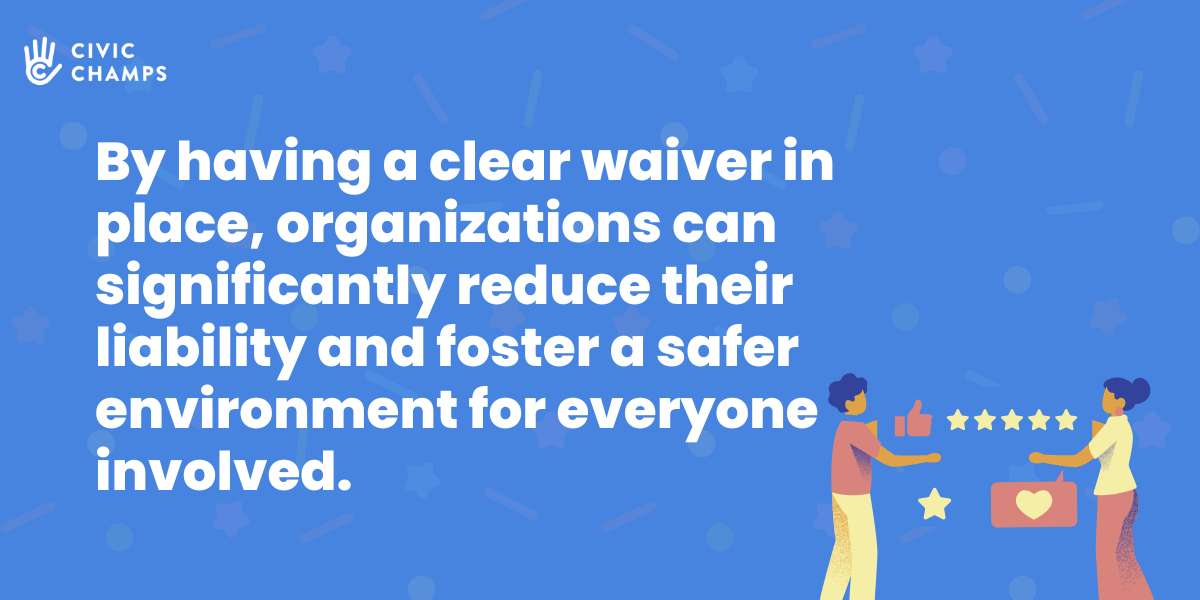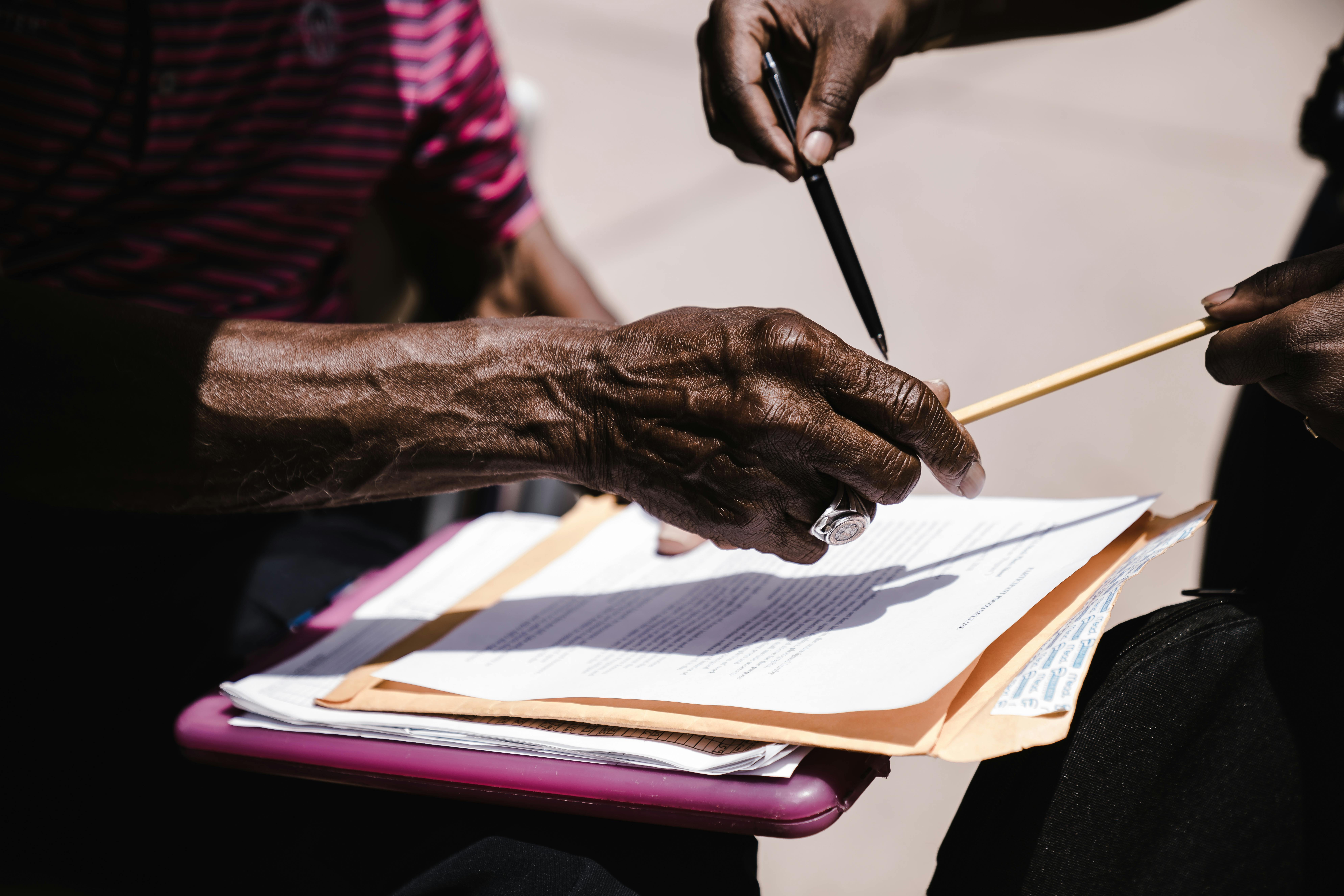A volunteer disclaimer is a crucial document that outlines the potential risks associated with volunteering. It serves to inform volunteers that they are participating at their own risk, thereby helping organizations mitigate liability. A well-crafted disclaimer can protect both the organization and the volunteers involved. For instance, a free volunteer waiver form can be used as an example of a disclaimer, providing a clear framework for what volunteers can expect and the responsibilities they assume.
Want to learn more? Check out our page on Volunteer Waivers examples.
What should a waiver say?
A waiver should clearly state that the volunteer releases the organization from liability for any injuries or damages that may occur during their participation. It should include specific details about the activities the volunteer will be engaged in, ensuring that they understand the nature of the tasks and any associated risks. This clarity is essential for both parties. The waiver meaning in contract law emphasizes the legal implications of signing such a document, making it vital for organizations to ensure that the language is precise and comprehensive.
In addition to outlining the risks, a waiver should also include:
- The name of the organization
- The volunteer's name and contact information
- A statement of understanding and acceptance of risks
- A signature line for the volunteer to acknowledge their agreement
By including these elements, organizations can create a robust waiver that serves its intended purpose. It’s critical for nonprofits to have a good handle on this so they can confidently take care of any volunteer agreement they may need to enter into with their volunteers. Speaking of which…
What is an example of a volunteer agreement?
A volunteer agreement is another essential document that outlines the expectations and responsibilities of both the volunteer and the organization. This agreement may include terms regarding confidentiality, the duration of the volunteer's service, and any specific roles or tasks assigned to the volunteer. It is important for organizations to clarify these expectations to foster a positive and productive volunteer experience.
An example of a volunteer agreement might include:
- A description of the volunteer's role
- Expectations regarding attendance and punctuality
- Guidelines for communication with staff and other volunteers
- Acknowledgment of the organization's policies and procedures
Additionally, the question do volunteers need to sign a waiver is often addressed in the agreement. By incorporating this aspect, organizations can ensure that volunteers are aware of their rights and responsibilities, further solidifying the legal protections in place.
Why do nonprofits need volunteer waivers?
Nonprofits need volunteer waivers to protect themselves from potential lawsuits that may arise from volunteer activities. These waivers help clarify the risks involved in volunteer work, ensuring that volunteers are fully informed before they engage in any activities. By having a clear waiver in place, organizations can significantly reduce their liability and foster a safer environment for everyone involved. According to the Nonprofits Insurance Alliance of California and Alliance of Nonprofits for Insurance, having a waiver can be a critical component of risk management for nonprofits.

For example, a Volunteer Waiver form in California is an example of a specific legal requirement for nonprofits operating in that state. This form not only protects the organization but also serves as a tool to educate volunteers about the inherent risks of their involvement.
In summary, having a well-drafted volunteer waiver is essential for nonprofits to safeguard their interests while promoting a transparent and responsible volunteer experience. Organizations can benefit from consulting legal professionals or utilizing software tools designed to streamline the waiver process, ensuring compliance and ease of use.
Civic Champs offers a comprehensive volunteer management software solution that simplifies the waiver process. Our platform allows organizations to create, manage, and store waivers digitally, ensuring that all necessary documents are easily accessible and securely stored. This feature not only enhances compliance but also reduces administrative workload by up to 85%, allowing organizations to focus on their mission rather than paperwork.
Ready to make a difference? Learn more about how volunteer waivers protect both you and your organization. Dive into our latest blog post and discover essential tips for ensuring a smooth volunteer experience!
---
If you’re looking for ways to improve your organization’s volunteer program, be sure to check out Civic Champs. Our powerful platform is designed to make volunteer management a breeze so you and your supporters can stay focused on the mission. Click here to schedule a demo today.

As CEO of Civic Champs, I lead our team of passionate change leaders to create technology solutions to create a seamless and rewarding volunteering experience for both volunteers and service organizations.


.png)

